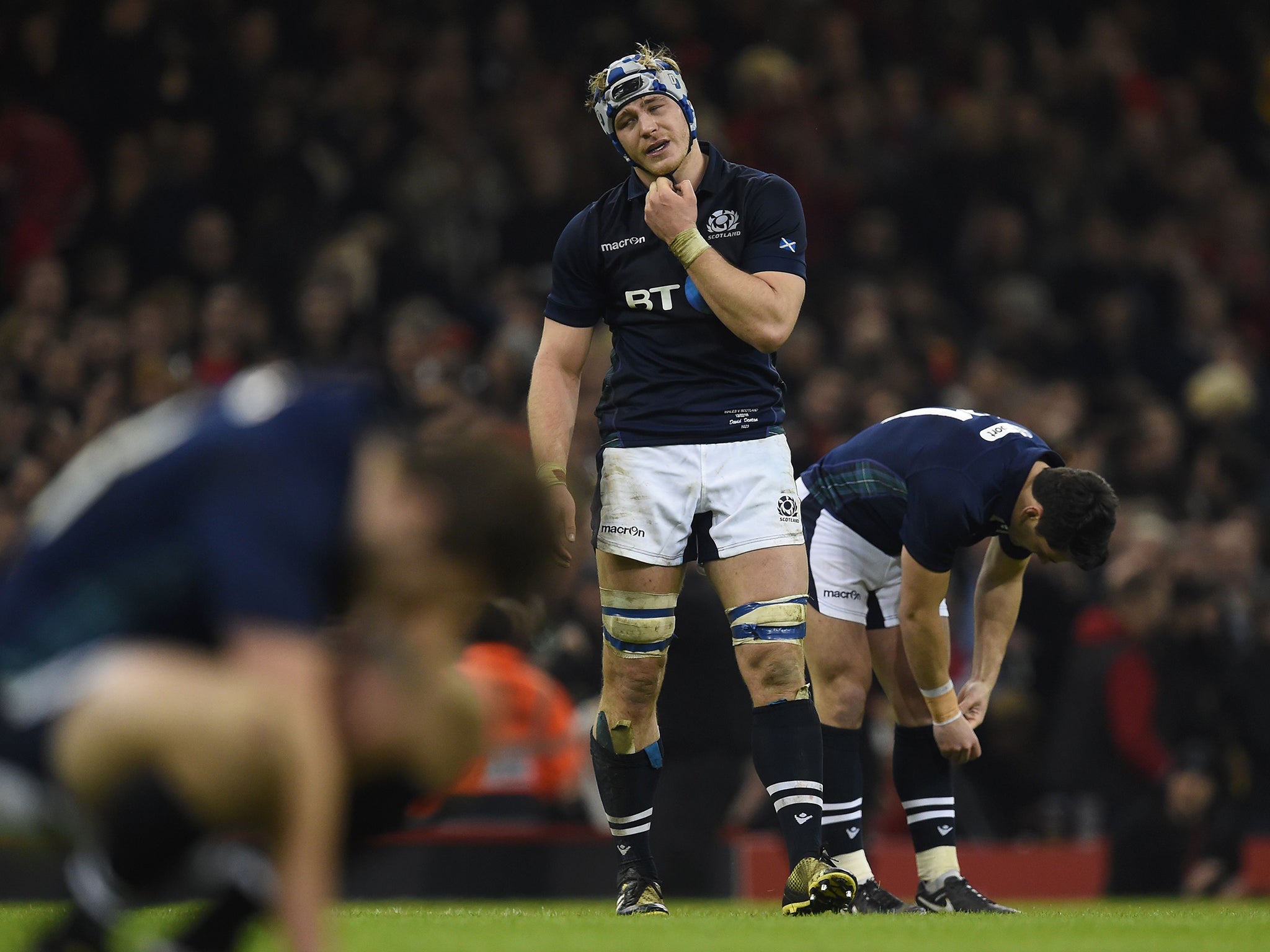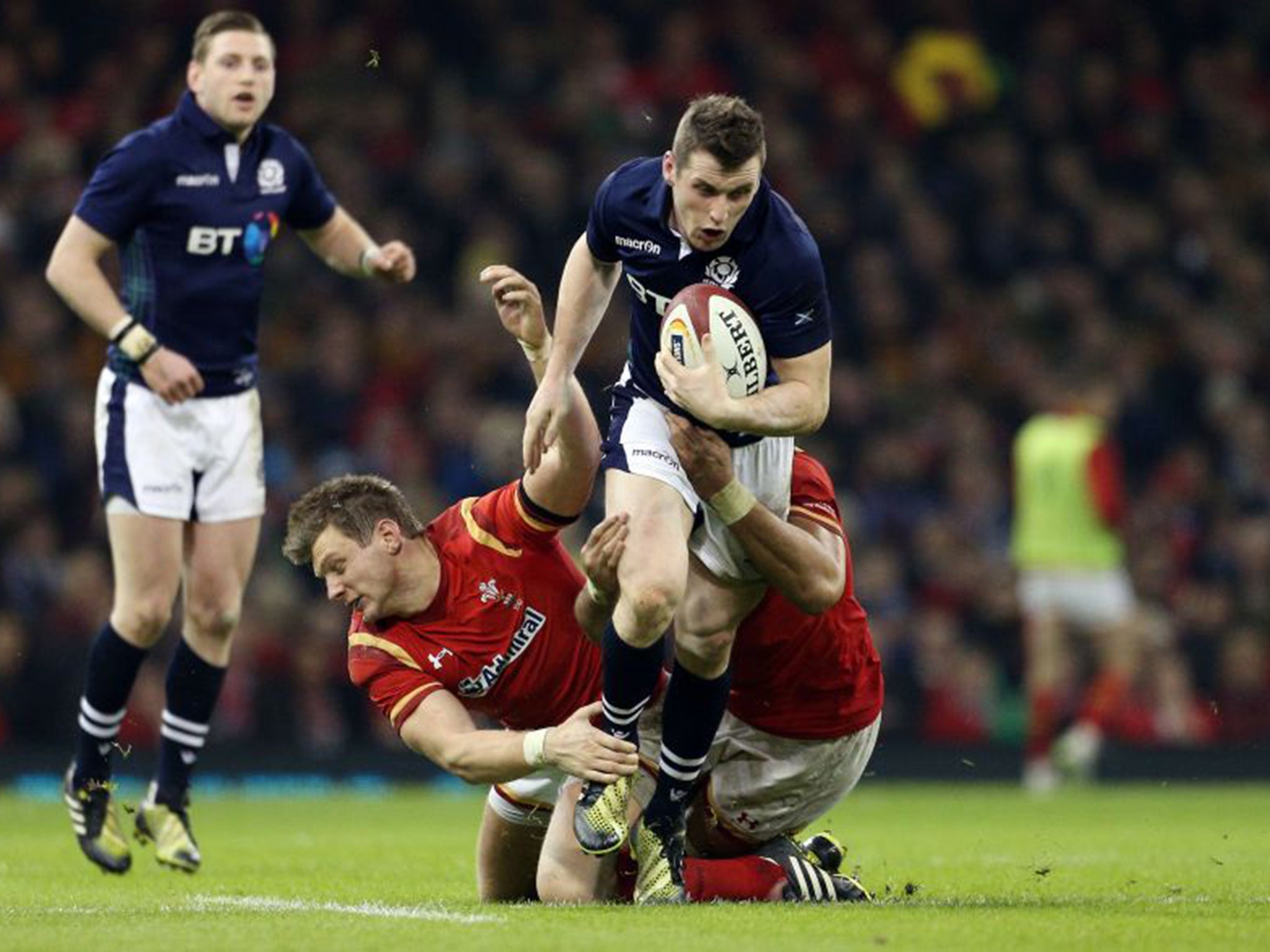Six Nations 2016: Scotland blew it after second half meltdown against Wales
What we've learnt at the Six Nations

Your support helps us to tell the story
From reproductive rights to climate change to Big Tech, The Independent is on the ground when the story is developing. Whether it's investigating the financials of Elon Musk's pro-Trump PAC or producing our latest documentary, 'The A Word', which shines a light on the American women fighting for reproductive rights, we know how important it is to parse out the facts from the messaging.
At such a critical moment in US history, we need reporters on the ground. Your donation allows us to keep sending journalists to speak to both sides of the story.
The Independent is trusted by Americans across the entire political spectrum. And unlike many other quality news outlets, we choose not to lock Americans out of our reporting and analysis with paywalls. We believe quality journalism should be available to everyone, paid for by those who can afford it.
Your support makes all the difference.How Scots lost their way in Cardiff
From being accurate and error-free in the first half, and full of purpose and shape, with Greig Laidlaw cleverly exploiting the gaps in Wales’s blitz defence that tend to occur near the breakdown, Scotland were completely incoherent after half-time.
Maybe it’s a lack of confidence, or the weight of history on their shoulders. But a searing example was Finn Russell at fly-half catching the ball near halfway and counterattacking, then seemingly checking himself, remembering he was supposed to be kicking downfield to keep Wales at bay, and volleying the ball into a red-jerseyed midriff.
The Scots handed Wales possession and field position through poor kicking and decisions – and the match was flipped on its head.
Rival centres with Lions potential
Scotland’s Mark Bennett has a glimmer in him of my old Northampton club-mate Allan Bateman, and that is high praise, because Bateman was a special player. In defence Bennett tackles low like Bateman, aka “The Clamp”, and in attack the way he can turn an inside line into an outside one is absolutely classic. But opposite him, Wales’s man-mountain Jamie Roberts was… well, he was Jamie Roberts. He understands when to hit the gas in defence and he forced the Scots repeatedly to turn back into the meat of the Welsh cover.
And Roberts’s try was typical Wales – will over skill, “Here we come, try and stop us”. It’s no consolation for Scotland now, but Bennett outside Roberts could be a very nice combination for next year’s Lions.

Why England want to get fitter
Wales looked like they had another gear when they needed it in the last 20 minutes. Suddenly they looked very fit, very organised and very confident, playing the “Warrenball” way that has served them well in the Six Nations in recent years. England aren’t at that level of fitness yet.
French scrum attack works well
The French coach, Guy Novès, accepted his selection of second-choice props had backfired. He swapped them over early in the second half and was rewarded with the winning try with channel-one ball in front of the posts.
It was an accident, of course, but it was akin to the miss-pass that bounces off the floor – it mesmerises people and then it is down to who reacts the quickest. Maxime Médard ran the perfect line to score while the Irish forwards were stuck on the scrum in fear of a penalty try and a yellow card. It was a great example of how the scrum can be used positively to create space.
Plisson can spearhead new France
I liked the look of this lad when he came through a couple of years ago, and Jules Plisson played very well. He has an instinctive feel for reading momentum and changing direction, and one ghosting break showed his ability to attack the soft points in a defence. I loved his kick-pass to Teddy Thomas on the edge of his 22 in the first minute – a clear signal of the mindset of both Plisson and his coach. .
Forgettable day for Irish back row
Sean O’Brien sadly succumbed to another injury, while the carrying threat of Ireland’s other starting flanker, CJ Stander, was negated to an extent by a mostly unsuccessful aerial bombardment of France’s back three. A tactical failure for the Irish.
Join our commenting forum
Join thought-provoking conversations, follow other Independent readers and see their replies
Comments